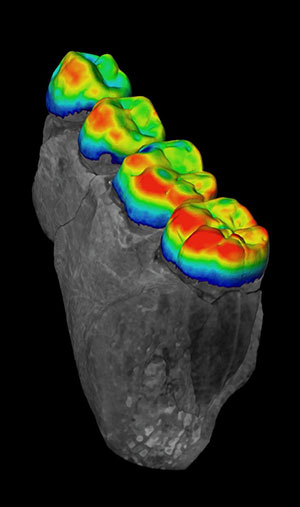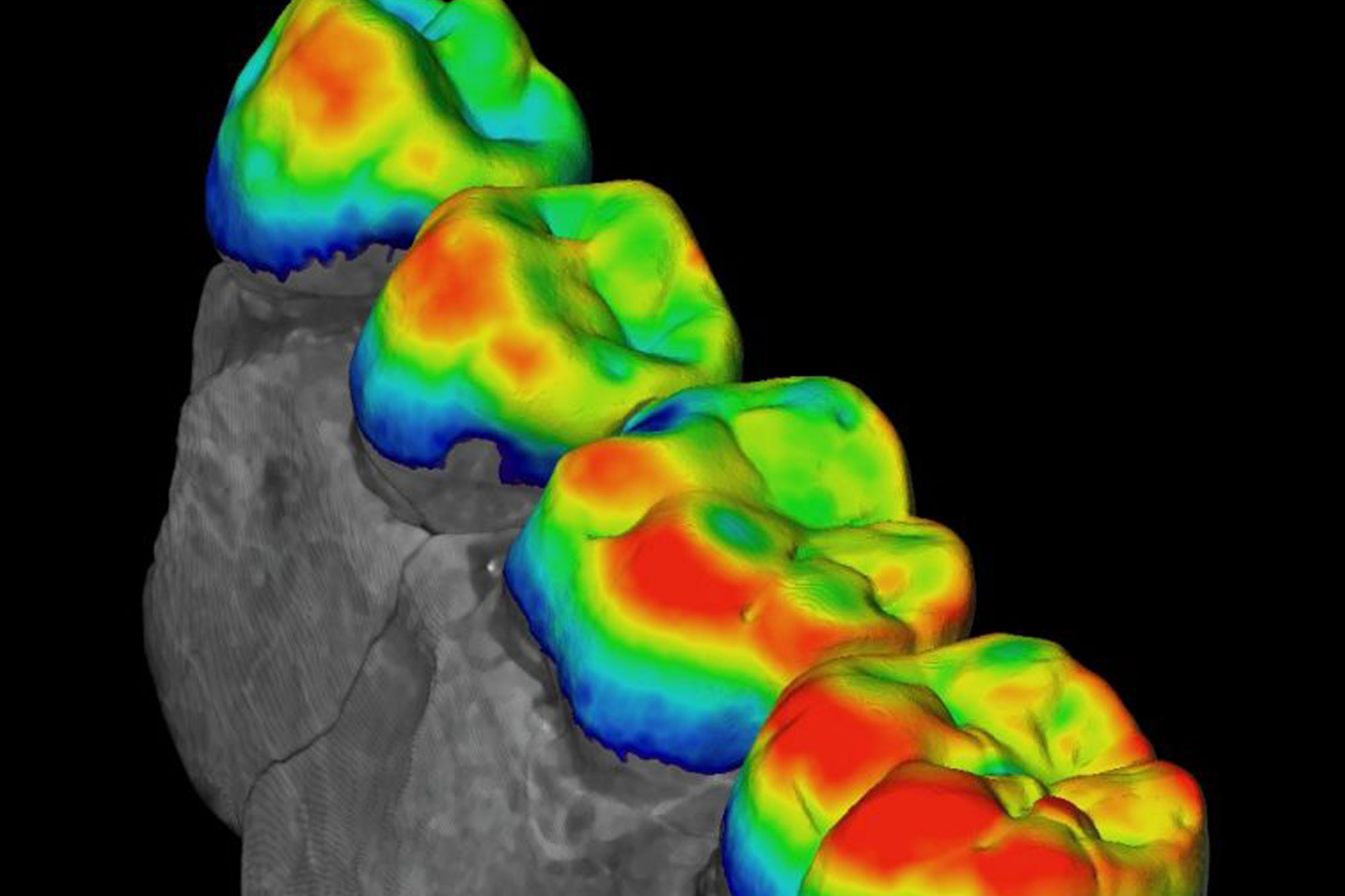The University has been awarded £250k from The Wolfson Foundation towards the cost of equipping a new Imaging Centre for the Life Sciences in the School of Anthropology and Conservation (SAC).
The funding will facilitate the purchase of an industrial microCT scanner that uses high-resolution x-rays to produce 3D images of objects. This piece of highly specialised equipment will enable researchers to examine the internal structures of biological and non-biological materials across a wide variety of projects. For example, it will be used by palaeoanthropologists to examine the bones and teeth of fossil human ancestors and reconstruct their behaviour 1-5 million years ago. Biological anthropologists will examine aspects of health and disease in medieval skeletons from Canterbury and the functional anatomy of the skeletons of our closest living ape relatives. Forensic anthropologists will use it to examine biological and non-biological materials from crime scenes.
While the Imaging Centre will be housed in SAC, it will also benefit research across the University. This includes the School of Physical Sciences and its Applied Optics Group (AOG) and Planetary Sciences. The AOG works on the development of non-invasive imaging systems for medical practice and is already engaged with SAC on non-destructive testing and forensic research. The access to microCT data will enhance the tomography imaging capabilities of the University by adding X-ray investigations to that already practised by the AOG at optical waves based on optical coherence tomography. The Planetary Science researchers will use the system as part of their laboratory work studying the effects of high-speed impacts on materials in space.
Importantly, undergraduate and postgraduate students, including those at Kent and Medway Medical School, will be able to work in the Imaging Centre to conduct novel research projects, learn innovative techniques and produce cutting-edge science under the mentorship of Kent’s internationally-recognised researchers.
The scanner will also support applications for competitive research grants from UK Research and Innovation funding bodies such as NERC, BBSRC, MRC, the European Research Council and European Space Agency.
In addition to academic applications, the Imaging Centre will be accessible to a variety of organisations including archaeological trusts, the Kent Police College and various industrial partners. It will be the only facility of its kind in the southeast and will provide an exciting opportunity to bring together the University’s top-quality researchers with professionals and practitioners across many fields.
Kent’s Vice-Chancellor and President, Professor Karen Cox, said, “We are grateful to The Wolfson Foundation for their generous support. This award will enhance both our research and teaching, and will help ensure that Kent remains at the forefront of a range of specialist disciplines for which we are internationally recognised.”
Paul Ramsbottom, Chief Executive of The Wolfson Foundation, commented, “This equipment will support a wonderful diversity of research, providing insights on subjects ranging from crime scenes to medieval skeletons. It cuts across many of Wolfson’s areas of interest, with the common connecting theme being the brilliance of the research and importance of the images provided by a microCT scanner. We are pleased to be supporting the University of Kent in this way.”
Professor Tracy Kivell, Head of SAC, added, “We are delighted by this award from The Wolfson Foundation. This is an excellent opportunity to build on the internationally-recognised research already going on in SAC and Kent more broadly, and to establish interdisciplinary research activities with both students and colleagues across the University.”
The Wolfson Foundation is an independent charity that supports and promotes excellence in the fields of science and health, heritage, humanities and the arts. Education and research underpins all that it does.
Since it was established in 1955, over £900 million (£1.9 billion in real terms) has been awarded to more than 11,000 projects throughout the UK, all on the basis of expert review.


